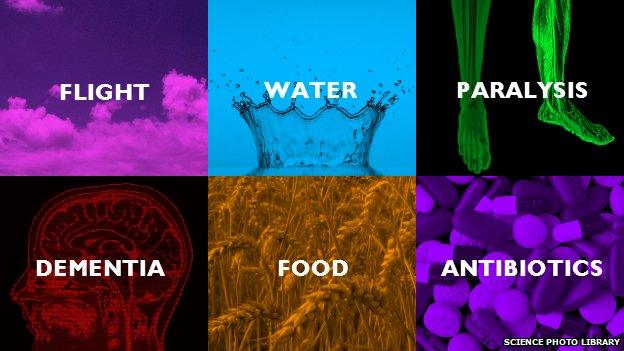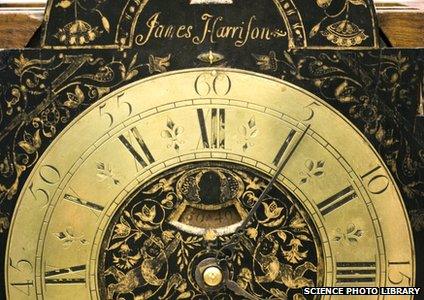Longitude prize: vote to decide biggest science problem
- Published

A big vote begins tonight to decide which of six global problems scientists should tackle, for the chance to win £10million.
The competition is called the Longitude Prize, and commemorates 300 years since the first challenge was set.
Flight - How can we fly without damaging the environment?
Food - How can we ensure everyone has healthy, sustainable food?
Antibiotics - How can we prevent bacteria becoming resistant to antibiotic medicines?
Paralysis - How can we restore movement to people who are paralysed?
Water - How can we ensure everyone has access to safe and clean water?
Dementia - How can we help people with dementia live independently for longer?
From tonight, the public will get to choose which issue they think is the most important to solve.
The problem with the most public votes will be announced on 25 June, and in September the competition begins!
A group of leading scientists has chosen six of the biggest challenges facing humanity.
From September people all over the world will be able to submit their solutions to the problem.
The challenge will run for five years - or until somebody wins the grand prize.
Watch Fran Scott explain more on the six problems
Historic competition
This year's Longitude Prize is based on a competition that was set up 300 years ago, in 1714.
Back then the British government offered £20,000 to anybody that could come up with something to pinpoint accurately a ship's position at sea.

The original contest was won by clockmaker John Harrison in 1765
It was one of the biggest difficulties facing sailors of the time.
The prize was eventually awarded in 1765 to John Harrison, a clockmaker and carpenter from Yorkshire.
No one big problem
Prof Sir Martin Rees, head of the Longitude Committee, said there's no "number one problem... as there was in the 18th Century."
He continued that there's a big need for the UK "to channel more brain power into innovation, jump-start new technologies and enthuse young people."
Charity Nesta and the government-funded Technology Strategy Board are offering the £10million prize.
The vote launches tonight after a special edition of Horizon on BBC Two, 9pm.
